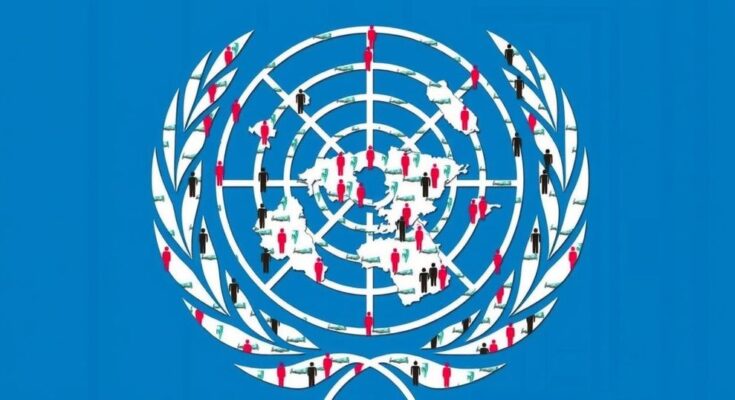Developing nations criticized the recently approved $300 billion annual climate deal at the UN summit in Baku as insufficient and a betrayal of their needs. Negotiations concluded with a commitment to significantly increase funding from $100 billion but fell short of the advocated $500 billion. Key representatives voiced strong dissatisfaction, asserting that the agreement does not adequately address the climate crisis.
At the recent UN climate summit in Baku, Azerbaijan, a contentious deal was ratified, committing developed nations to contribute at least $300 billion annually by 2035 to support developing countries in mitigating greenhouse gas emissions and preparing for climate-related disasters. However, this agreement faced strong criticism from representatives of poorer nations, who deemed the figure as grossly inadequate given the magnitude of the climate crisis.
Following two weeks of extensive negotiations, nearly 200 nations agreed to the financing pact, yet the response was far from celebratory. Chandni Raina, India’s delegate, condemned the allocation as a “paltry sum,” emphasizing that the agreement fails to address the significant challenges at hand. Similarly, Sierra Leone’s climate minister, Jiwoh Abdulai, expressed disappointment, suggesting that the outcome reflects a lack of commitment from developed nations.
The frustrations extended beyond India and Sierra Leone, as several influential groups representing developing nations, including the Alliance of Small Island States and the Least Developed Countries, voiced their dissatisfaction. With many countries advocating for a $500 billion commitment, the final deal fell dramatically short of expectations amidst fears that the discussions were overshadowed by political and fiscal pressures.
UN climate chief Simon Stiell acknowledged the imperfections of the deal, stating that “no country got everything they wanted” at the summit while urging nations to view it as a starting point. Furthermore, UN Secretary-General Antonio Guterres had anticipated a more ambitious agreement but urged for the necessity of building upon the foundation laid.
Last-minute negotiations led to the acceptance of the $300 billion figure, which increased from a previous $100 billion commitment. However, critics, including Kenyan director of Power Shift Africa, Mohamed Adow, lamented the agreement as failing to accommodate the needs of the developing world, labeling it a “betrayal” of commitments made by wealthier nations.
Although the deal specifies a broader target of $1.3 trillion annually for climate change adaptation and mitigation, most of this funding is expected to stem from private sources rather than direct government allocations. The discussions also highlight the ongoing complexities in addressing climate finance, particularly in light of shifting political landscapes in developed countries.
The issue of climate finance has become increasingly urgent as developing nations confront escalating challenges posed by climate change. There is a growing economic divide and a call for wealthier nations, historically significant contributors to greenhouse gas emissions, to provide financial support to those most affected yet least responsible. The negotiations at the UN climate summit aimed to address this disparity and formulate a comprehensive strategy for climate action moving forward, despite varying interests and political pressures among nations.
In conclusion, the recent UN climate summit concluded with a contentious deal that has failed to satisfy the demands of developing nations. The approved commitment of $300 billion per year by 2035 was criticized as insufficient to meet the pressing needs and challenges posed by climate change. Stakeholders, including leaders from developing countries, continue to call for enhanced financial support, emphasizing the need for a more ambitious and equitable approach to global climate finance.
Original Source: www.france24.com




